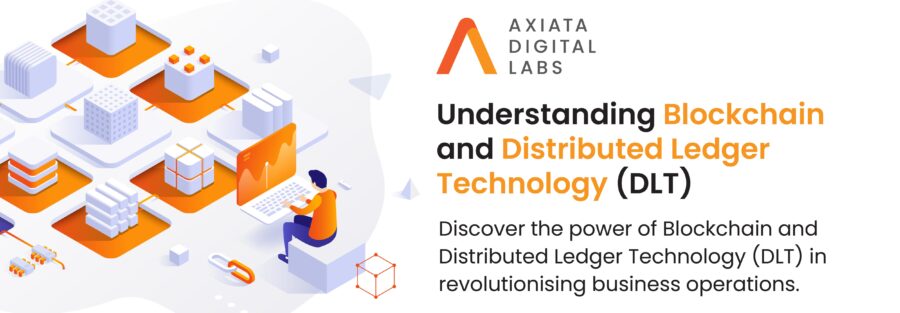Blockchain and Distributed Ledger Technology (DLT) are two innovative technologies that have disrupted various industries worldwide.
Blockchain is a decentralized, tamper-proof ledger that allows for secure and transparent transactions. It uses cryptographic algorithms to ensure data integrity and authenticity, eliminating the need for intermediaries such as banks or government institutions. DLT is a broader term that encompasses various distributed databases that store information in a decentralized and secure manner. Both technologies are used in various industries, including finance, healthcare, logistics, and supply chain management, to name a few.
Blockchain and distributed ledger technology (DLT) offer several benefits across various industries. Here are some of the key advantages:
- Decentralization and Transparency: Blockchain and DLT systems operate on a decentralized network of computers, known as nodes, which collectively validate and store transactions. This decentralized nature eliminates the need for a central authority, reducing the risk of a single point of failure or manipulation. Transactions recorded on the blockchain are transparent and can be accessed by all participants, ensuring trust and accountability.
- Enhanced Security: Blockchain employs advanced cryptographic techniques to secure transactions and data. Each transaction is verified, encrypted, and linked to the previous transaction, forming a chain of blocks. Once a block is added to the chain, it becomes virtually immutable, making it extremely difficult for unauthorized parties to alter or tamper with the data. This high level of security is particularly valuable for industries like finance, supply chain, and healthcare, where data integrity is critical.
- Improved Efficiency and Cost Savings: By eliminating intermediaries or central authorities, blockchain and DLT systems streamline processes, reduce complexity, and increase operational efficiency. Smart contracts, a feature of blockchain, automate the execution of predefined contractual terms, eliminating the need for manual intervention and reducing the time and costs associated with traditional contract management. Additionally, blockchain can facilitate faster and more secure cross-border transactions, reducing settlement times and associated costs.
- Traceability and Auditability: Blockchain enables the tracking and tracing of assets, products, or transactions throughout their lifecycle. This feature is particularly beneficial in supply chain management, where stakeholders can record and verify every step of the supply chain, from raw material sourcing to the final product delivery. It enhances transparency, mitigates the risk of counterfeit goods, and provides consumers with verifiable information about the origin and authenticity of products.
- Data Integrity and Privacy: Blockchain employs encryption techniques to secure data, ensuring its integrity and confidentiality. Users have control over their data and can choose what information to share and with whom, reducing the risks associated with data breaches and unauthorized access. DLT systems can also enable privacy-enhancing technologies, such as zero-knowledge proofs, which allow verification of data without revealing the underlying information.
- Innovation and New Business Models: Blockchain and DLT have the potential to foster innovation and enable new business models. They provide a foundation for creating decentralized applications (dApps) and platforms, allowing developers to build solutions with increased trust, security, and transparency. These technologies have facilitated the emergence of cryptocurrencies, Initial Coin Offerings (ICOs), and decentralized finance (DeFi), opening up new avenues for fundraising, peer-to-peer transactions, and financial services.
- Trust and Collaboration: Blockchain and DLT systems promote trust and collaboration among participants. As transactions are recorded and verified by multiple nodes in the network, there is no reliance on a single trusted party. This decentralized trust model enables parties that may not have a prior relationship to transact securely and efficiently. Moreover, blockchain can facilitate consortiums and shared databases, where multiple organizations can collaborate and share information while maintaining privacy and data control.
These are just some of the benefits of blockchain and distributed ledger technology. As the technology evolves, it continues to find applications in various sectors, promising transformative potential in terms of security, efficiency, and trust in digital interactions.




